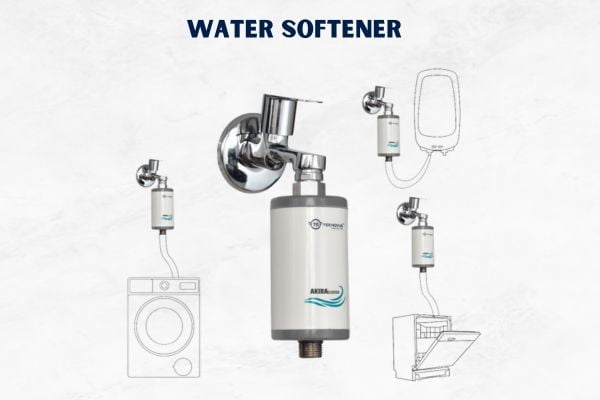Extending the Lifespan of Your Geyser: Essential Maintenance Tips
-
Posted by
 Sandesh Srivastava
Sandesh Srivastava

Taking a hot shower immediately helps you feel better when it comes to unwinding and relaxing after an extremely demanding day. In addition to refreshing you, hot water baths are recognised for their numerous health advantages, including restful sleep, clear, healthy skin, relief from fever and cold, and more. Furthermore, we must overlook the fact that water heaters are a true blessing when discussing hot showers. They simplify, ease, and relieve the tension out of our lives.
In the winter, we can't fathom living without a water heater. We're here to share more knowledge about extending the lifespan of a geyser.
Importance of maintaining geyser

Although most of us are aware of how to use a geyser, very few of us are involved in its maintenance. Although the typical water heater is meant to last 8 to 12 years, most of the time we have to pay for geyser repair before then. Thus, the following advice will help you prolong the lifespan of your geyser.
Understand your geyser first
Comprehending your geyser is essential for efficient upkeep. Different varieties, including storage and tankless geysers, include separate parts such as thermostats and heating elements. Common problems including silt accumulation, corrosion, and decreased heating effectiveness can result from neglecting maintenance.
Learning these details allows you to take proactive steps that guarantee lifespan and peak performance. Potential issues may be avoided by performing routine inspections on parts including anode rods, valves, and the tank’s flushing system. Understanding the anatomy of your geyser can help you take timely action to solve problems, ensuring a steady supply of hot water and reducing the need for expensive repairs.
How To Extend Your Geyser’s Life Span: 7 Easy Tips
- Always Turn off the geyser when not in use: You have to turn off the geyser when you’re done using it. Stainless steel or mild steel with a polymer or glass line coating, along with an additional tank, make up a storage water heater tank. The geyser’s heating element will increase the temperature as soon as the tank’s water temperature drops. Both the use of geysers and electricity consumption rise as a result.
If you’re concerned that the water could go cold, keep in mind that the storage tank should be able to maintain the water’s temperature for four to five hours even after the water heater is turned off.
- Always empty the water heater tank when not in use: It is not recommended to leave the water in the storage tank of a storage geyser for an extended period. This will produce an unpleasant smell in addition to causing germs to grow in the stagnant water. When not in use, the best course of action is to empty the geyser tank, particularly if you are travelling.
- Replace damaged elements in your water heater: Making sure there is no limestone buildup in the tank is one of the most fundamental Water heater maintenance advice. It is the worst enemy of your water heater, literally. It destroys the geyser’s valve and other heating components. It is crucial to periodically repair the heating components to avoid this from happening before the limescale renders them entirely inoperable.
- Ensure regular maintenance of your geyser: Getting regular geyser service is crucial, so avoid browsing through last-minute water heater repair tips. By doing frequent checks, you may help keep your geyser from suffering any irreparable damage. While attending these services, be careful to:
- Become as efficient as possible when using a geyser.
- Note down all the important details about your geyser, such as the model number and the kind of water heater you have.
- 5. Ensure regular maintenance of your geyser: Getting regular geyser service is crucial, so avoid browsing through last-minute water heater repair tips. By doing frequent checks, you may help keep your geyser from suffering any irreparable damage. While attending these services, be careful to:
- Become as efficient as possible when using a geyser.
- Note down all the important details about your geyser, such as the model number and the kind of water heater you have.
6. Do not use the water heater during voltage fluctuations: When turned on, the geyser needs a steady source of energy, just like the refrigerator or television. The water heater may not function as smoothly when there are fluctuations in the voltage. Make sure the voltage supply for your geyser is not too high or too low.
- Use water softener: Your home’s water heater’s effectiveness may be impacted by the quality of the water. The water you receive may be hard if the water source has significant levels of calcium and magnesium. If the mineral deposits caused by hard water are not removed from the bottom of your heater, it may significantly shorten its lifespan. Installing a water softener for appliances will stop this from happening by filtering out the hard minerals in the water and enabling only soft water to pass through the pipes.

Common Geyser Problems and Solutions
Problem 1:
Geyser keeps overflowing
Solution
If steam and hot water are escaping the overflow pipe, turn off your geyser immediately using the main distribution board, and let the water cool down by running a hot water tap for a short while.
Problem 2:
Geyser is not cut off
Solution
You should examine the thermostat’s temperature setting if your geyser is overheating or isn’t cutting off on its own.
Problem 3:
Geyser not giving enough water
Solution
Either the water flow is too low or you are not getting enough of it. You must first determine whether water is flowing via every tap in the house.
Problem 4:
Geyser giving shock
Solution
As soon as you feel a shock coming on, turn off the geyser. In this case, earthing must be checked first. Many pieces of equipment can shock users with electricity if the earthing is defective. Checking is always preferable.
Conclusion
In summary, maintaining the lifespan of your geyser is critical for a continuous supply of hot water, and following basic maintenance guidelines is crucial. In this endeavour, the Akira MaxSafe water softener proves to be an invaluable ally. It protects and maximises the function of your geyser and other household appliances by preventing corrosion and limescale development.





